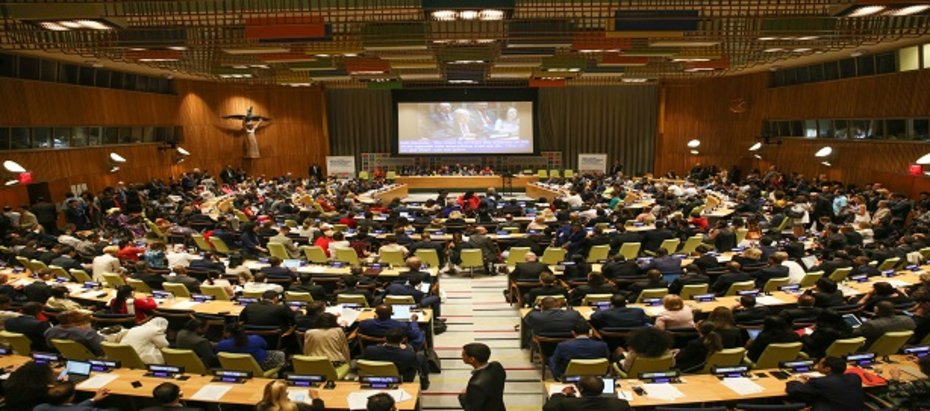
News
Review of the Implementation of SDG7
The session was chaired by Marie Chatardová, the President of the United Nations Economic and Social Council (ECOSOC). Positive developments in renewable energies were emphasized by the moderator Adnan Amin, Director-General of International Renewable Energy Agency (IRENA). For example, China, India, and Saudi Arabia have since 2015 progressively strengthened their commitments to install hundreds of gigawatts of renewable energy. In addition, declining costs favor the business case for renewables over fossil fuels.
During the discussions, statistical data on the progress towards SDG7 were also introduced: the number of people who are lacking electricity access sunk under the threshold of one billion. However, this number needs to be further reduced to achieve SDG7. Detailed action plans, which are backed by political will, multi-stakeholder partnerships, increased investment volume and bottom-up approaches are needed to accelerate progress. In addition, the crucial role of women in energy policies, investment and entrepreneurship and capacity building were stressed. Gender and equity considerations related to SDG 7 were emphasized and an inter-governmental oversight mechanism for the Sustainable Development Goal 7 was proposed.
In the course of the recent years, the world’s population has been increasing (increase of 1.4 billion people between 2000 - 2016), which poses increasing new challenges to the ‘leave no one behind’ goal. As it was stated throughout the course of the HLPF, more than 3 million people (41% of the population) are still lacking access to modern cooking technologies. This adversely impacts human health and well-being, and mostly women and children are suffering from household air pollution. Therefore, the need for increased political attention and rapid clean cooking fuel deployment were emphasized. To scale up existing best praxis examples, clean cooking solutions have to be at the top of the political agenda, which could further facilitate public investments and multi-sectoral partnerships.
In order to carry out these approaches, the role of precise and accurate data is of utmost importance, particularly in developing countries. Energy technology innovation should also be accelerated, which could further facilitate the deployment of renewable energy sources, especially when coupled with energy efficiency measures. In addition, the significance of doubling the global financing for SDG7 was also emphasized in the course of the review session.
Sources:
IISD Reporting Service: http://enb.iisd.org/vol33/enb3339e.html
Sustainable Development Knowledge Platform: https://sustainabledevelopment.un.org/content/documents/19841SDG7_Highlights.updated_format.pdf
